TEAM AMANI
The AMANI project brings initiatives aimed at enhancing inclusivity and creating opportunities for riders based in Africa
After the successful participation of Sule Kangangi in 2021 (6th Finisher, 2 days 8 hours) in his first ultra ever with some of the best endurance riders in the world, we chat with Mikel Delagrange, a Human Rights Lawyer and Founder of Team AMANI, the project that creates racing opportunities and cultural experiences for East African riders in Europe and US.
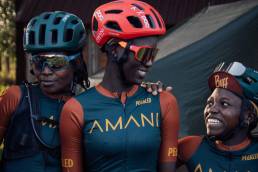
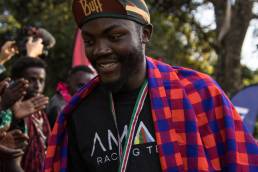
1. What’s the story and the motivations behind Team AMANI?
Despite the rhetoric to the contrary, cycling is a regional (read European) sport. The idea behind AMANI is to try and make cycling more international by reducing the structural barriers that exist and by providing the resources needed to let the rest of the world participate.
It’s a self-interested pursuit by true fans of the sport – we won’t know what humans are truly capable of on the bike (and also who the true champions are) until the rest of the world is allowed to play.
While there are many countries, regions and continents in the world that are under-represented in cycling, we are focused on the East African countries of Kenya, Uganda and Rwanda. Consultation with our athletes has driven each and every one of our initiatives. We are not a charity and our athletes are not looking for handouts – just opportunities to race.
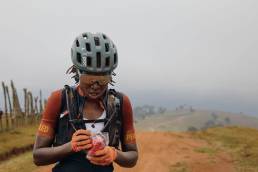
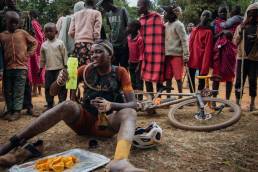
2. Which are the biggest barriers that still remain in cycling?
Outdated ideas about the Global South (and Africa in particular) within Cycling. The Industry (and by that I mean corporations, race organizers and teams) continues to cling to a 1980s idea of Africa – one that conjures up images of war, famine, poverty and disease. While these ideas were never true of the entire continent, in the 40 years that have elapsed since they last looked, some pretty amazing development has transpired.
There is a new Africa with shiny capital cities, wealth, middle classes and athletes (and consumers) looking to ride bikes. Without the economic incentive of untapped markets, corporations won’t make the necessary investments to make cycling accessible to athletes in the Global South. This will, in turn, prevent resources from being diverted to long term development programs. This in turn reduces the numbers of cyclists in the talent pool of any given country. Which in turn results in the status quo.
We are hoping to change that by inviting all of our corporate partners to make their products available in the East African market. In so doing we are hoping to illustrate that supporting the Team is actually good for business. And if our partnership model is good for business, then perhaps it will become more of a peer to peer relationship without all of the ugly power dynamics and instability that typically feature in development programs.
If we manage to achieve all of this, then perhaps we can kick start an new imagining of the Global South within cycling – rather than blank areas on the map, these regions could be seen as the lands of opportunity. A change in mindset is the only way the barriers will fall.
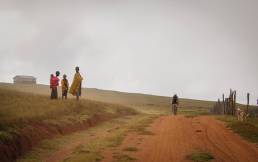
3. You also organise two amazing gravel events in Africa, Migration Gravel Race and Evolution Gravel Race, with some popular riders such as Lachlan Morton, Mattia de Marchi or Laurens Ten Dan in the start line these last two years. Could you speak us about these races?
The idea behind these races is to bring the mountain to Mohammad. Typically, a select few from East Africa have been sent to pressure packed auditions in Europe to see if they can cut it in the world tour. Anyone who has come up the development ranks in any given European country knows that this is a process pre-destined for failure.
The only way to get better is to have steady local access to top flight competition. Our races are a step in that direction. Rather than a few riders going on expensive trips to Europe, we invite the best of the West to come and race in our countries. In so doing, as many as 40 top athletes from the region can experience the pace and professionalism of the best in the west and modulate their training and ambitions accordingly. It also offers us the opportunity to show off the new Africa to our visiting athletes in the hopes that they too will become ambassadors for East Africa as an adventure sports destination.
Lastly, on the notion of fairness, its a great equalizing opportunity. For once, Western athletes will get a chance to race in a setting where everyone looks different, speaks foreign languages and eats different food. This marginal anxiety impacts on performance – and we hope that the more athletes who experience this from the West, the easier it will be to create infrastructure within cycling to help mitigate this effect (especially when our athletes are travelling to Europe).
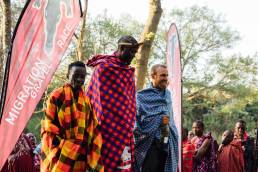
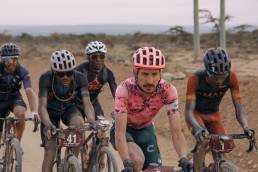
4. This year Team AMANI will bring two riders to Badlands, could you speak about your expectations?
Badlands is such a beautiful event and Sule’s ride last year was a real game changer for us – we saw that with a little preparation and experience, we can have good results.
This year, we are sending Geoffrey Langat and Kenneth Karaya. Geoffrey was second (in a near sprint finish) in the Race Around Rwanda 2022 and first at Jeroboam last year against top flight competition. However, Geoffrey had a nasty crash in Migration and cracked his hip – so he’ll be primarily riding Badlands as a spirit guide for Kenneth (who will be taking on his first ultra event at Badlands) and using the beautiful course to get himself back into shape for the remainder of the year.
Kenneth is primarily a mountain biker (he rode Cape Epic with Lachlan Morton last year) but has demonstrated that he can go long and hard on numerous occasions. So let’s see –no matter what– it’s going to be another great learning experience for the team.
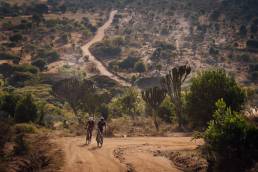
5. Lastly, how can get involved those who want to support this project?
We are basically a coalition of cycling lovers who want to see our sport grow. If you share in that passion, reach out to us through our website ot media and we’ll take it from there. Money always helps but so does word of mouth. There are lots of ways to support. Join us!
Photos: @saltlake_lian